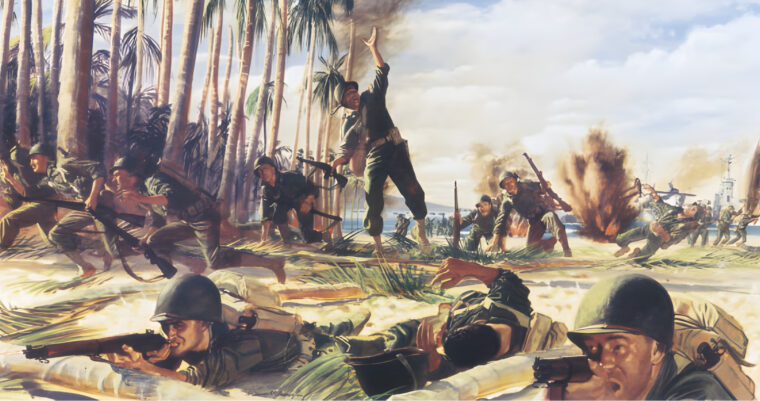
July 2003
WWII History
“Red” Mantini: Hero Of The 24th Infantry Division In Philippines
By Richard A. BerantyAngelo J. “Red” Mantini was hardly an angel growing up in the small coal-mining towns of western Pennsylvania in the 1930s. Read more
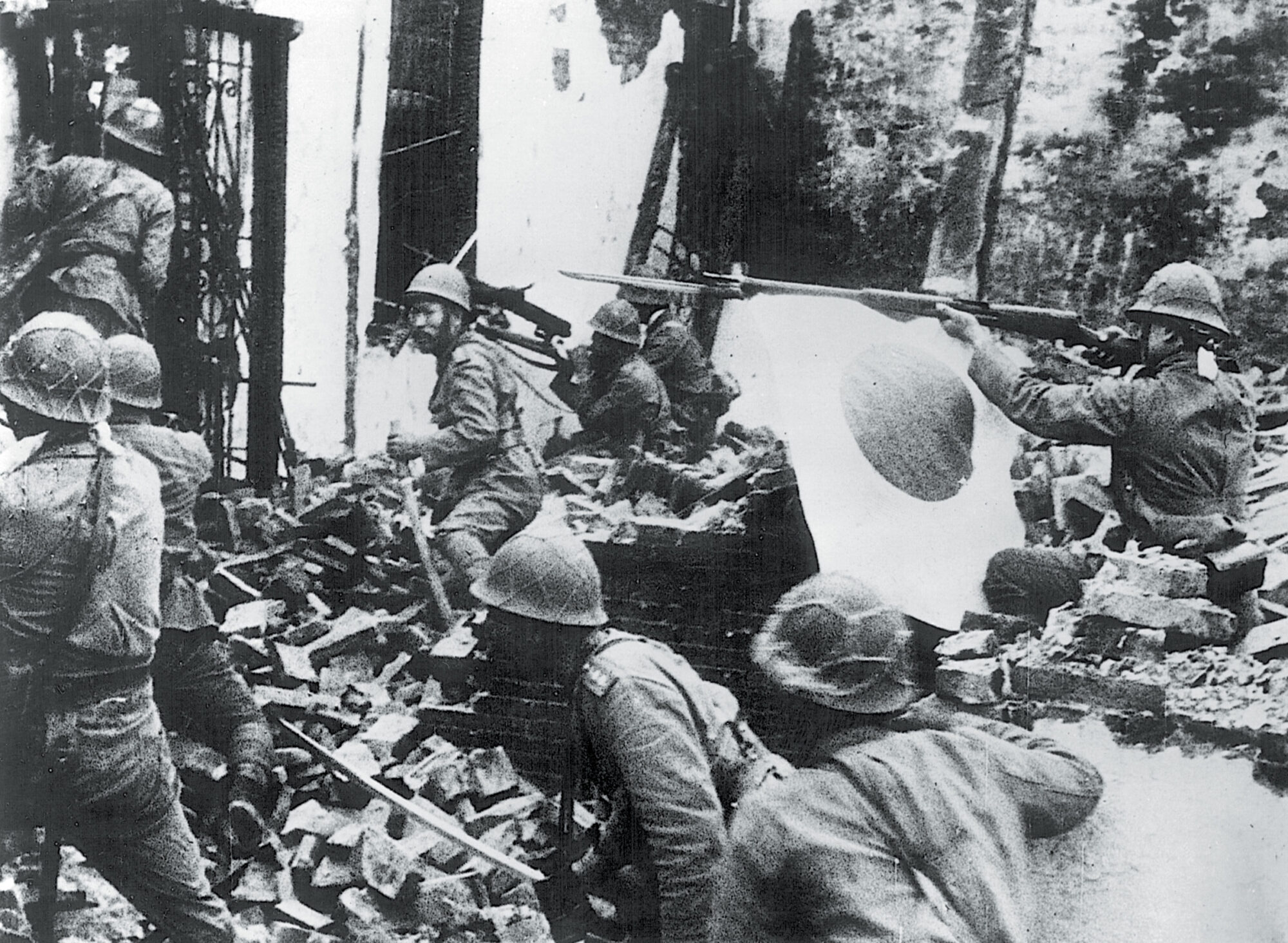
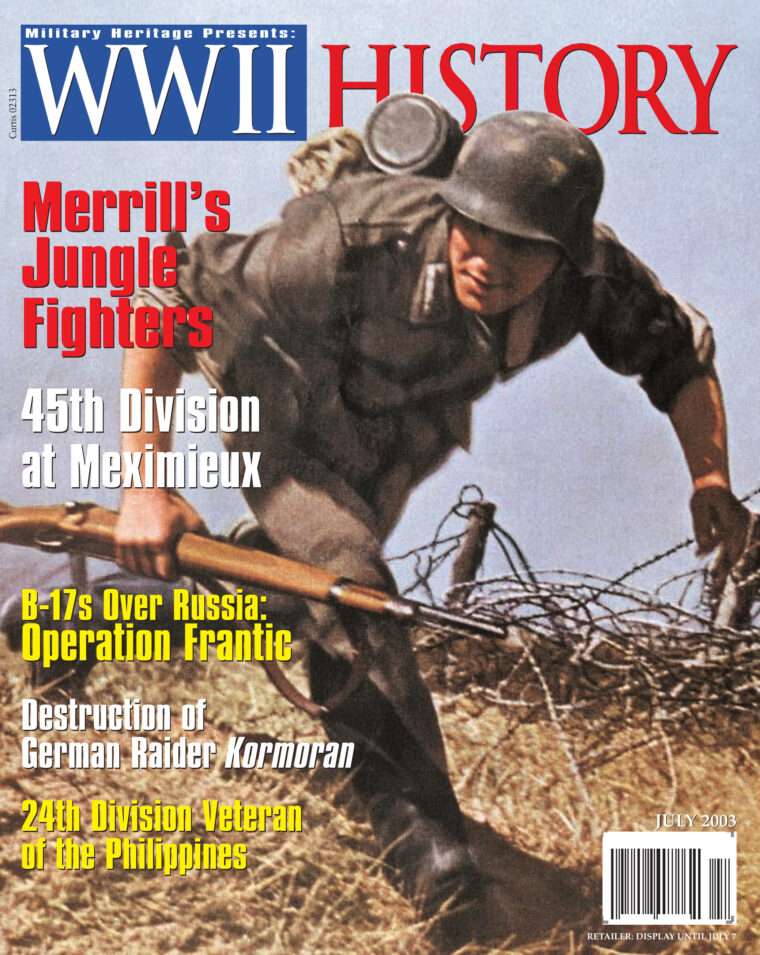
Volume 2, No. 4
A German infantry soldier advances during an attack on the enemy. Photo originally appeared in Signal magazine, No. 14, July 1942. Courtesy of The Bridgeman Art Library.

July 2003
WWII History
Angelo J. “Red” Mantini was hardly an angel growing up in the small coal-mining towns of western Pennsylvania in the 1930s. Read more
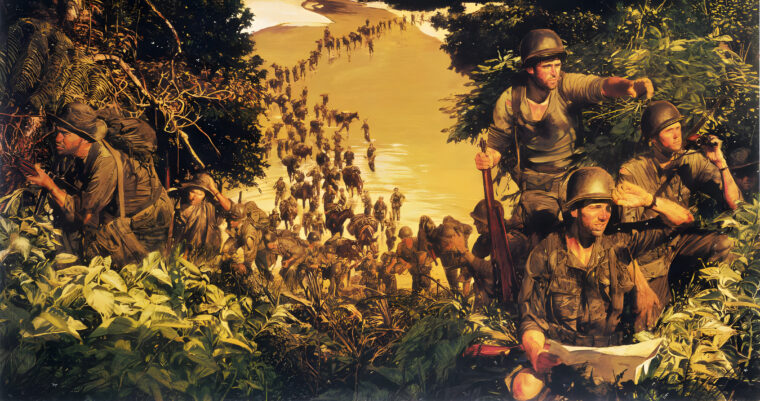
July 2003
WWII History
A series of swift victories took Japanese troops to the gates of India in 1941-1942 when British and Indian units fell back to the Assam hills northwest of Burma. Read more
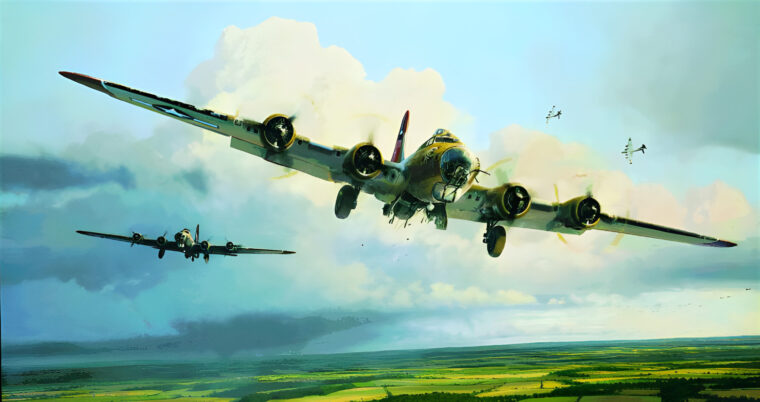
July 2003
WWII History
Early on the overcast afternoon of June 2, 1944, three white-starred Boeing B-17 Flying Fortresses in V-formation roared over the Soviet air base at Poltava. Read more
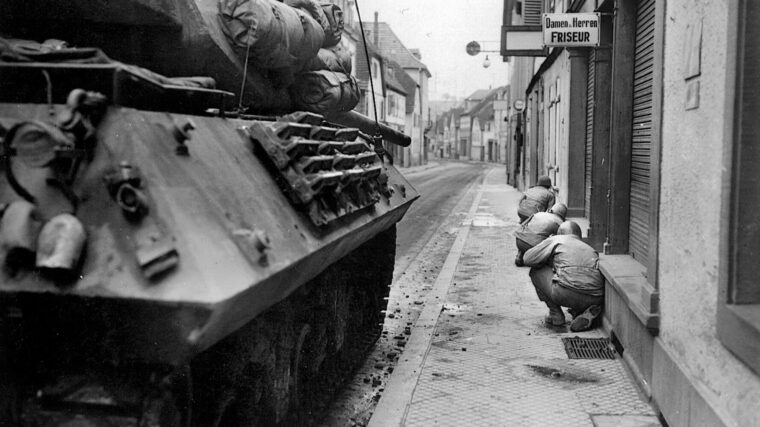
July 2003
WWII History
Nineteen-year-old Private First Class Peter Gaidosh of East Rochester, NY, was enjoying that rarest of wartime treats—a hot breakfast of fresh eggs, coffee, and pancakes—on the front lines. Read more
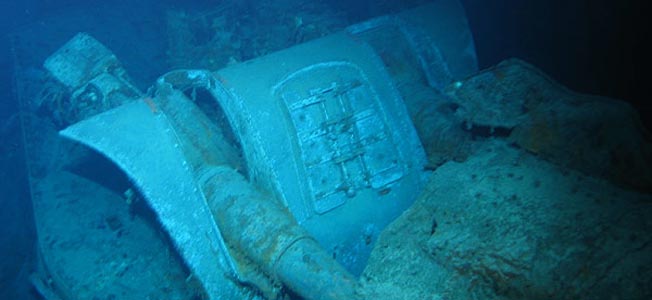
July 2003
WWII History
In November 1941, about 150 miles off the west coast of Australia, a singular naval battle was fought that had great implications for all struggles at sea, past and future. Read more
July 2003
WWII History
General Douglas MacArthur once said that the soldier above all prays for peace because he knows the terrible price of war. Read more
July 2003
WWII History, Dispatches
Dear Editor,
To put it simply, WWII History is a spectacular magazine.
Nowhere else can one find such well-researched, clear, or concise articles as the ones found on your pages. Read more
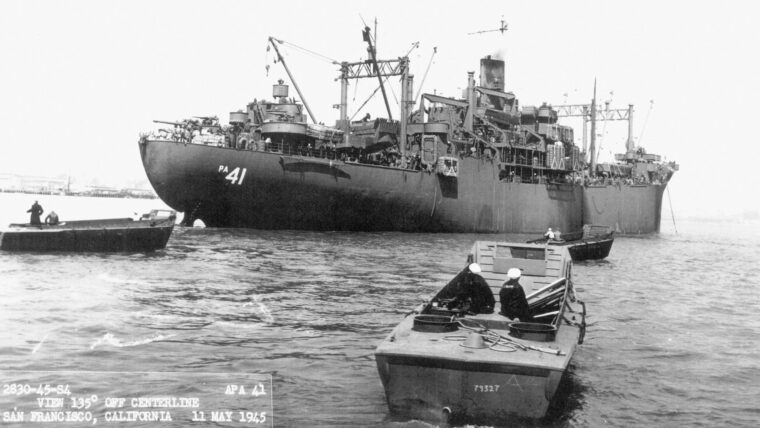
July 2003
WWII History, Ordnance
The mighty invasion armada for the main thrust at Luzon in the Philippine Islands was being assembled on December 28, 1944. Read more
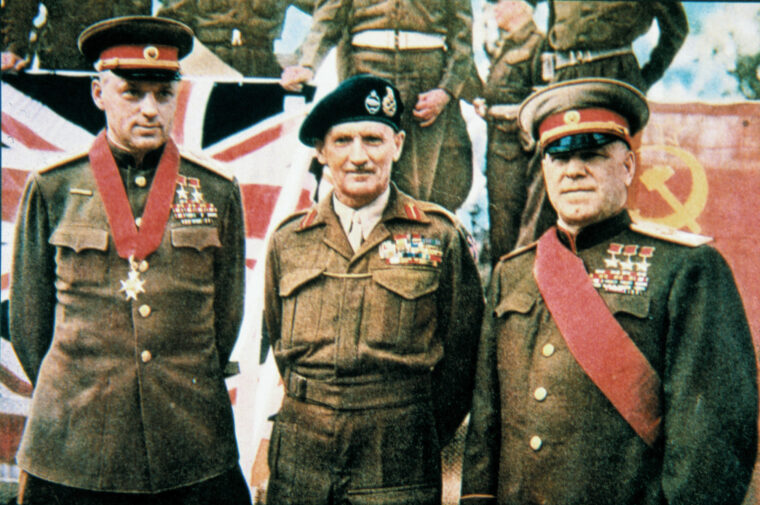
July 2003
WWII History, Profiles
By Blaine Taylor
The German Wehrmacht had just invaded the Soviet Union in the predawn hours of June 22, 1941, and the chief of the Soviet General Staff, General Georgi Konstantinovich Zhukov, was calling the Kremlin in Moscow to alert dictator Josef Stalin, nicknamed “The Chief. Read more
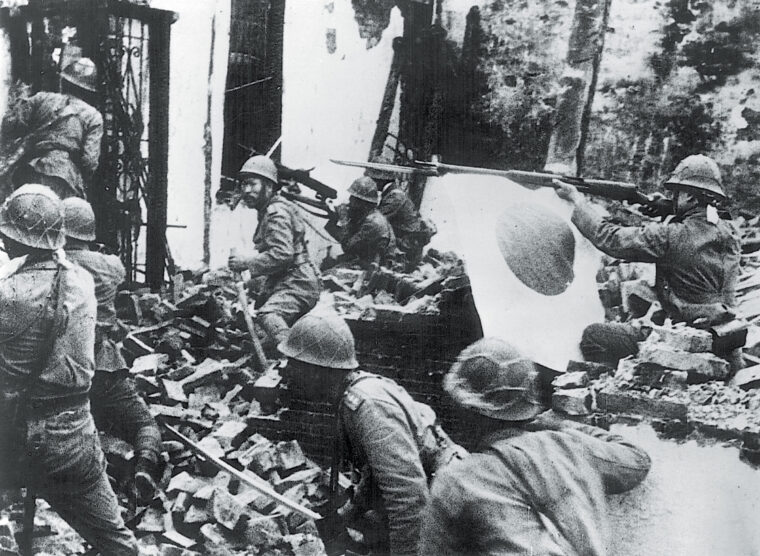
July 2003
WWII History, Top Secret
One of Franklin D. Roosevelt’s longtime interests was the hidden world of espionage. In the months before the United States entered World War II, the commander-in-chief was dabbling in the covert world of intelligence-gathering, using a number of trusted personal friends as his own private eyes and ears around the globe. Read more
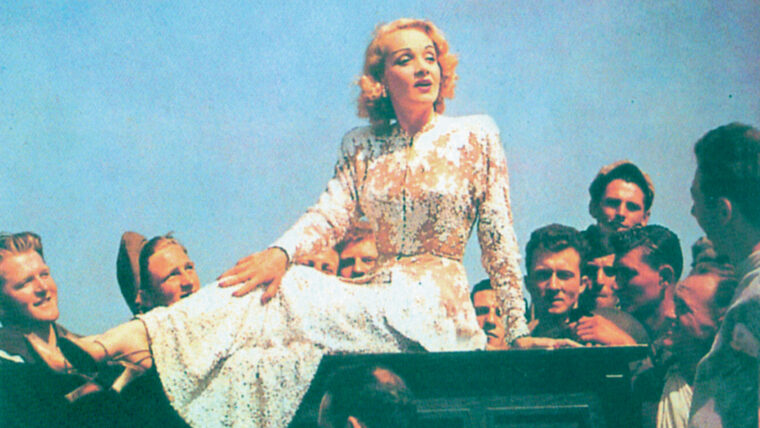
July 2003
WWII History, Insight
The true story of “Lili Marlene,” possibly the most famous war song ever written because of its universal themes of separation, loneliness, heartbreak, hope, fear of death, and dreaming for one’s love, is varying, contradictory, and controversial. Read more
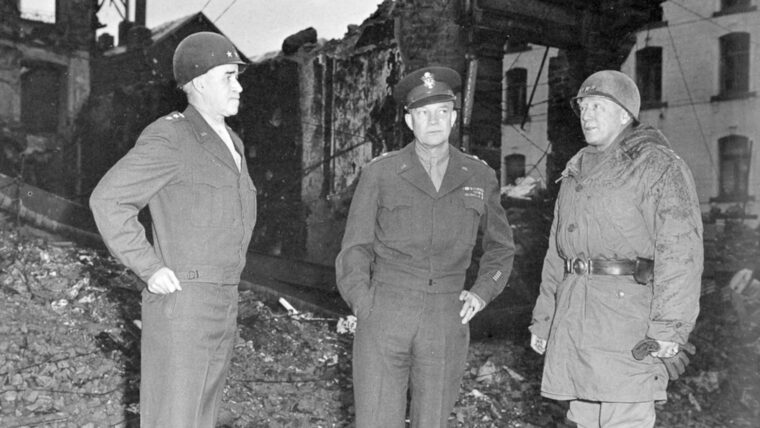
July 2003
WWII History, Books
An obscure U.S. Army staff officer who had never been in action, Dwight David Eisenhower was a lieutenant colonel at the age of 50 with no visible prospects for advancement in the stagnant between-the-wars promotion system. Read more